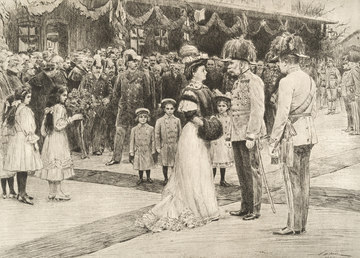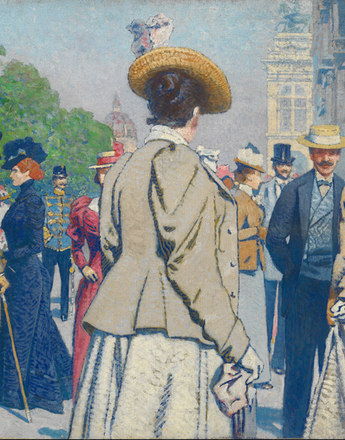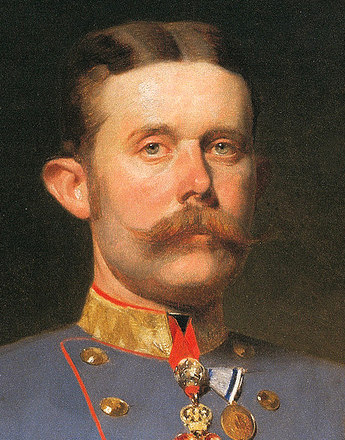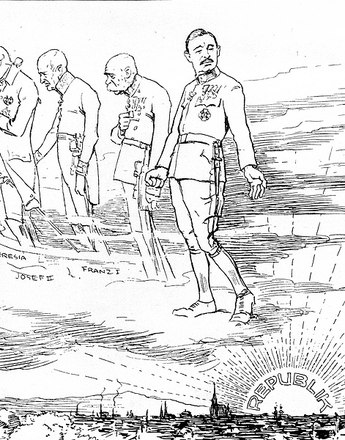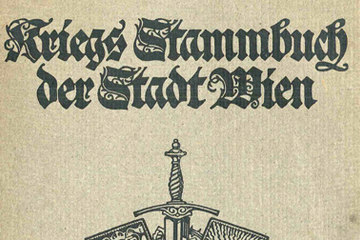Relations between Franz Joseph and his nephew Franz Ferdinand, who had become heir to the throne following the death of Crown Prince Rudolf, were far from harmonious and trustful.
Possessed of profoundly different personalities, the emperor and his successor had widely diverging views of the office of emperor and the future of the monarchy.
The personal dislike between uncle and nephew originated from their differences in character. Whereas Franz Joseph was self-controlled and reticent to a fault, Franz Ferdinand had a rather charmless personality and was prone to acting on impulse. The two infuriated each other: encounters between the two frequently degenerated into shouting matches, with Franz Joseph putting an end to the discussion with a categorical “As long as I live, I rule!”. Franz Ferdinand saw in Franz Joseph an old man desperately clinging on to power, while the emperor believed his successor to be a hothead who for sheer ambition could not wait for him to die.
Franz Joseph thought that his successor should remain patiently and submissively in the background until the eleventh hour. For this reason the emperor rarely involved his heir in the political decision-making process – a mistake that he had already made with his son Rudolf and was later to repeat with his great-nephew Karl. Having himself come to power at the young age of eighteen, Franz Joseph was evidently unable to see things from an heir’s perspective.
The personal antipathy between the ageing emperor and his successor was reinforced by their conflicting political views: Franz Joseph reacted with intense irritation to Franz Ferdinand’s wholly sensible suggestions regarding the modernization of the Court and the imperial army, of which the archduke was General Inspector. Franz Ferdinand developed ambitious plans for the monarchy’s future; he was an opponent of the Hungarian Compromise, which he wanted to dilute in favour of a deeper involvement of the Slav nationalities. The archduke’s political ideas were influenced by clerical and anti-democratic currents, and he was a decided opponent of Modernist trends in art and culture.
Franz Ferdinand began to collect a circle of intimates about him which came to be regarded as a kind of shadow government. As the emperor’s demise could be expected at any time given his advanced age, he wanted to be prepared for when he assumed the reins of power. The centre of this political grouping was the heir’s official residence, the Upper Belvedere Palace in Vienna, while the traditional courtly elites clustered around the “old gentleman at Schönbrunn”. Schönbrunn and the Belvedere consequently became the political shorthand for the intergenerational conflict in the House of Habsburg.
Translation: Sophie Kidd
Aichelburg, Wladimir: Erzherzog Franz Ferdinand von Österreich-Este und Artstetten, Wien 2000
Beller, Steven: Franz Joseph. Eine Biographie, Wien 1997
Bled, Jean-Paul: Franz Ferdinand. Der eigensinnige Thronfolger, Wien u. a. 2013
Holler, Gerd: Franz Ferdinand von Österreich-Este, Wien [u.a.] 1982
Kann, Robert A.: Erzherzog Franz Ferdinand. Studien, Wien 1976
-
Chapters
- Franz Joseph: the ageing emperor
- The problem of the succession
- Franz Joseph and Franz Ferdinand – a tense relationship
- Franz Ferdinand and his political programme
- Kaiser Wilhelm II: The Beloved Enemy
- “Archduke Bumbsti”
- Karl as successor to the throne
- The New Emperor
- Karl I and the collapse of the Monarchy
- The last days of the Monarchy
- Emperor Karl on his way into exile

